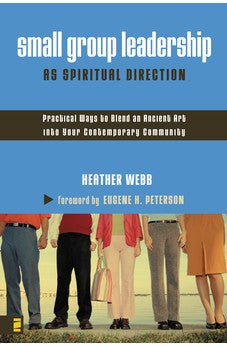CONNECTING
3 Great Reasons to Buy from Us:
We are all interdependent on each other, which is why connecting with others plays such an indispensable role in healthy development. Having access to the wisdom, experience, vision, and direction of others can put you years ahead of where you?d be on your own.Mentoring relationships can be key to effective discipleship and evangelism. This book shows you how to do it effectively. From the Back Cover WE WERE MEANT FOR EACH OTHER. None of us are fully equipped to excel in life. Our weaknesses, blind spots, limited capabilities, and lack of experience all point to one thing-interdependence. Which is why connecting with others plays such an indispensable role in healthy development. Having access to the wisdom, experience, vision, and direction of those who have gone before can put you years ahead of where you?d be on your own. And, in addition to enhancing you own potential in all of life?s growth areas (spiritual, emotional, professional, relational, etc.), the things you?ll discover will equip you to help others as well. So why don?t we place more of a priority on developing these essential, empowering relationships? Are we uneasy with the vulnerability, assuming it will be perceived as weakness? Do we hesitate to ask, not wanting to impose on anyone else?s busy schedule? Are we reluctant to provide guidance for others, not wanting to come across as proud or self-important? Each of these factors can play a part, of course. But the main reason we miss out, according to Stanley and Clinton, is that we simply don?t understand the true nature of mentoring-a problem that is easily overcome. About the Author Dr. J. Robert (Bobby) Clinton is Professor of Leadership at the School of Intercultural Studies of Fuller Theological Seminary. He has coordinated the leadership concentration in the School of Intercultural Studies for more than 25 years. Bobby models and teaches the concepts of lifelong development and of the focused life, as well as the importance of mentoring to develop leaders. Before coming to Fuller, he and his wife, Marilyn, served as missionaries for Worldteam in Jamaica. His writings, besides the leadership commentary series, include numerous biblical examples of leadership development. His publications include: The Making of A Leader; Leadership Emergence Theory; Connecting-Mentoring Relationships; The Mentor Handbook; Focused Lives; Strategic Concepts- That Clarify a Focused Life; and Having a Ministry That Lasts-By Becoming a Bible Centered Leader. His major focus in writing and teaching now is to help leaders inform their leadership from the Bible. Dr. Clinton has studied each of the books of the Bible from a leadership perspective. His book, The Bible and Leadership Values, contains that initial research on the Bible. From this study he has selected the top 25 books that contribute much to leadership thought. For each book of his Biblical Leadership Commentary Series, Dr. Clinton comments on the text from a leadership standpoint. He defines leadership concepts, which shed light on the leadership implications in the text. Further, Dr. Clinton writes short leadership articles, which further suggest the importance of Biblical insights for leadership. Fourteen leadership commentaries have been completed to date: Jonah, Nehemiah, Haggai, Obadiah, Daniel, John, 1,2 Corinthians, Philippians, Titus, 1,2 Timothy, 1, 2 Timothy.
We are all interdependent on each other, which is why connecting with others plays such an indispensable role in healthy development. Having access to the wisdom, experience, vision, and direction of others can put you years ahead of where you?d be on your own.Mentoring relationships can be key to effective discipleship and evangelism. This book shows you how to do it effectively. From the Back Cover WE WERE MEANT FOR EACH OTHER. None of us are fully equipped to excel in life. Our weaknesses, blind spots, limited capabilities, and lack of experience all point to one thing-interdependence. Which is why connecting with others plays such an indispensable role in healthy development. Having access to the wisdom, experience, vision, and direction of those who have gone before can put you years ahead of where you?d be on your own. And, in addition to enhancing you own potential in all of life?s growth areas (spiritual, emotional, professional, relational, etc.), the things you?ll discover will equip you to help others as well. So why don?t we place more of a priority on developing these essential, empowering relationships? Are we uneasy with the vulnerability, assuming it will be perceived as weakness? Do we hesitate to ask, not wanting to impose on anyone else?s busy schedule? Are we reluctant to provide guidance for others, not wanting to come across as proud or self-important? Each of these factors can play a part, of course. But the main reason we miss out, according to Stanley and Clinton, is that we simply don?t understand the true nature of mentoring-a problem that is easily overcome. About the Author Dr. J. Robert (Bobby) Clinton is Professor of Leadership at the School of Intercultural Studies of Fuller Theological Seminary. He has coordinated the leadership concentration in the School of Intercultural Studies for more than 25 years. Bobby models and teaches the concepts of lifelong development and of the focused life, as well as the importance of mentoring to develop leaders. Before coming to Fuller, he and his wife, Marilyn, served as missionaries for Worldteam in Jamaica. His writings, besides the leadership commentary series, include numerous biblical examples of leadership development. His publications include: The Making of A Leader; Leadership Emergence Theory; Connecting-Mentoring Relationships; The Mentor Handbook; Focused Lives; Strategic Concepts- That Clarify a Focused Life; and Having a Ministry That Lasts-By Becoming a Bible Centered Leader. His major focus in writing and teaching now is to help leaders inform their leadership from the Bible. Dr. Clinton has studied each of the books of the Bible from a leadership perspective. His book, The Bible and Leadership Values, contains that initial research on the Bible. From this study he has selected the top 25 books that contribute much to leadership thought. For each book of his Biblical Leadership Commentary Series, Dr. Clinton comments on the text from a leadership standpoint. He defines leadership concepts, which shed light on the leadership implications in the text. Further, Dr. Clinton writes short leadership articles, which further suggest the importance of Biblical insights for leadership. Fourteen leadership commentaries have been completed to date: Jonah, Nehemiah, Haggai, Obadiah, Daniel, John, 1,2 Corinthians, Philippians, Titus, 1,2 Timothy, 1, 2 Timothy.


































